Dementia is a condition wherein one’s memory, reasoning, behavior, and ability to carry out daily tasks worsen over time. From the moment they get up to the moment they go to bed, the patient’s memories and ability to complete any activity go out of control. Dementia isn’t based on a single disease, but it can be affected by a combination of them. Memory loss is a frequent sign of dementia, although it can be caused by a number of other things. Loss of memory isn’t always an indication of dementia, though it’s usually one of the earliest signs.
Dementia is a broad term that encompasses a wide range of medical disorders, including Alzheimer’s disease, and includes different symptoms of coherent loss, such as clumsiness, amnesia, and forgetting their family, friends, and among others. Alzheimer’s disease is responsible for 60-80% of instances. The second most frequent cause of dementia is vascular dementia, which is caused by micro bleeding and blood artery obstruction in the brain.
CContents
What is Dementia?
Dementia is triggered by a mixture of injuries and illnesses that cause hallucinations directly or indirectly, such as Alzheimer’s attack or stroke. Some dementias progress over time. This means they continue to worsen with time. Some types of dementia can be treated or even reversed. Dementia, according to some experts, refers to unalterable mental decline.
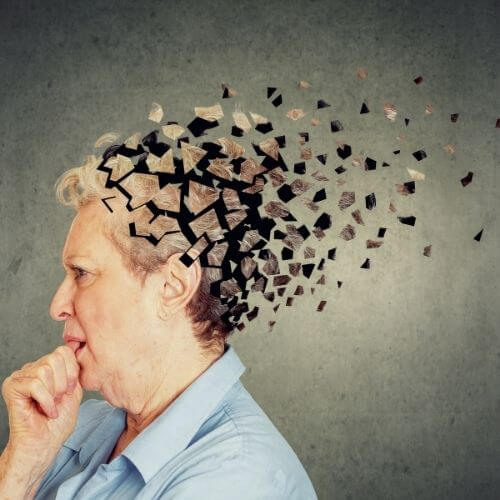
Dementia is a leading source of impairment and reliance among the elderly across the country. Alzheimer’s can be caused by a variety of factors. It occurs when the areas of your brain that are responsible for learning, memory, decision-making, and language are injured or sick. It is also known as significant neurocognitive impairment. Abnormal brain alterations produce the disorders classified under the umbrella term “dementia.” These alterations cause a loss in thinking abilities, also known as cognitive capacities, which are severe enough to interfere with everyday living and independence.
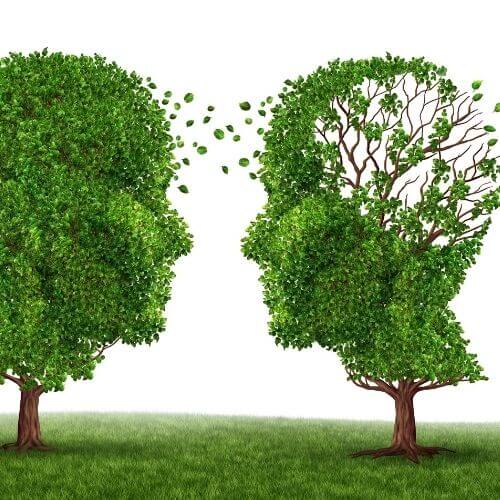
Dementia might be referred to erroneously as “senility” or “senile dementia,” reflecting the erroneous notion that significant mental deterioration is a natural aspect of aging. Dementia is not a natural aspect of aging, even though it primarily affects older people.
Etiology of Dementia?
Damage to, changes in, and loss of nerve cells and their connections in the brain cause dementia. Dementias are frequently classified according to what they have in commonalities, such as the proteins produced in the brain or the afflicted brain region. Dementia can also be caused by head traumas, strokes, brain tumors, and other conditions.
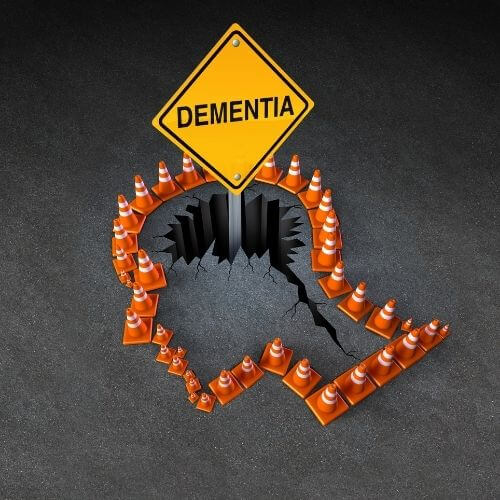
The following are some of the most common causes of dementia:
- Vascular dementia is caused by damage to the blood arteries that provide blood to the brain. Strokes, for example, can harm the white matter of the brain’s fibres.
- Alcoholism is caused by psychological or social problems that can destroy families and have an influence on a person’s brain; a psychiatric episode can exacerbate dementia.
- If you don’t obtain the correct prescription on time, pharmaceutical side effects can quickly deteriorate and lead to worsening dementia.
- Depression makes it more difficult for doctors to treat the patient since their mental health deteriorates and their dementia worsens.
- Alzheimer’s disease, frontotemporal lobar dementia, dementia with Lewy bodies, and Parkinson’s disease dementia are examples of degenerative neurological illnesses that can exacerbate the problem.
Symptoms & Signs
Since dementia is such a broad word, symptoms can vary greatly from one individual to the next, depending on the severity of the illness and the individual’s characteristics prior to getting afflicted. There are three steps to understanding dementia signs and symptoms.
The Very First Sign
Family members, as well as the patient, overlook this stage. They believe it is caused by old age or a lack of protein absorption. Moreover, Amnesia sets in, causing you to lose track of time and feel bewildered in familiar surroundings.
The Transitional Sign
When dementia reaches the transition step, the signs and symptoms become more obvious and restrictive. These include forgetting family member names, forgetting the address, having increased communication difficulties, and suffering lifestyle patterns such as roaming and frequent inquiry.
The last Sign
Dementia’s last stage is marked by close proximity dependency and lethargy. Memory problems are significant, and the physical signs and symptoms grow more noticeable as time goes on. Indications include losing track of time and location, developing a greater need for supported self-care, having trouble walking, and exhibiting aggression. The patient begins to act uncontrollably and become enraged about little issues.
With the three stages, cognitive and psychological changes begin to emerge, and it is essential to consult a doctor without delay, and the person’s behavioral changes should not be overlooked.
Diagnosis
To diagnose dementia, a clinician must first observe the pattern of loss of abilities and functions, as well as evaluate what a person can still perform. The first step in diagnosing a condition is to learn about the sickness history of the patient.
Nevertheless, there is a lot that could be done to help and enhance the lives of persons with dementia, as well as their caregivers and family. The following are the main objectives of dementia care:
- Identifying and treating concomitant physical disease to improve early and optimum management of physical health, cognition, activity, and well-being.
- To enhance the brain and neurological system, as well as general psychiatry, the patient’s family should consult a neurologist, psychiatrist, psychologist, or geriatrician.
- The doctor will go over the patient’s medical history and conduct a physical examination as well as cognitive testing.
- Depending on the history and physical examination, further tests may be required.
- Tests of the blood and urine
- X-ray of the chest
- Scanning of the brain (MRI or CT scanning)
- EEG is an electroencephalogram (EEG)
- Tests of cognition and neuropsychology
Treatment
To assess if there is cause for worry, a healthcare professional can provide tests on attentiveness, cognition, critical thinking, and other inner-sphere activities. There is no cure for neurodegenerative dementias like Alzheimer’s, but there are medicines that can help preserve the brain or control symptoms like anxiety and psychological problems.
A balanced diet and healthy living, which includes regular exercise, good food, and keeping close friendships, lowers the risk of serious disease and may lessen the number of persons diagnosed with dementia. A physical exam, blood tests, and brain scans such as a CT or MRI can all be used to figure out what’s causing the problem.
The methods described are used to alleviate dementia symptoms significantly:
- Inhibitors of cholinesterase.
- Donepezil (Aricept),
- rivastigmine (Exelon), and
- galantamine (Razadyne)
The medications listed above work by raising the amounts of a chemical signal that is crucial for learning and reasoning. Depression, Sleep difficulties, Delusions, Parkinsonism, and Anxiety are examples of symptoms or diseases that can be treated with medications recommended by a doctor.
Conclusion
Dementia does not go away after it has been formally diagnosed, although the symptoms may come and go, and the illness may present itself in diverse situations that vary from individual to individual. Alzheimer’s and dementia symptoms and indications progress at varying rates. It progresses through many stages, but it never truly “disappears.” The patient’s family must provide adequate care for them by being physically and psychologically present with them, as well as managing their hostility with love and compassion. Even though it is not a mental illness, the patient experiences a wide range of symptoms, including sadness and aggressiveness.



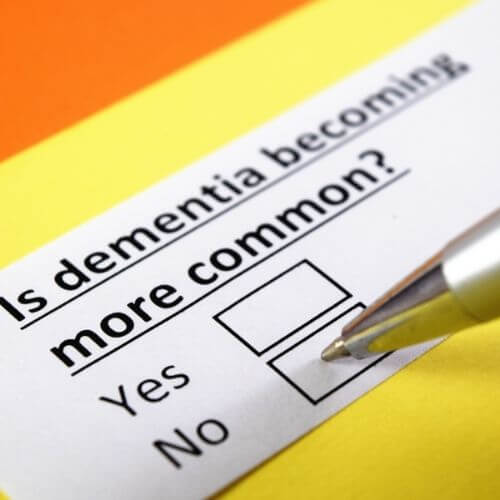
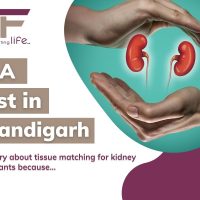
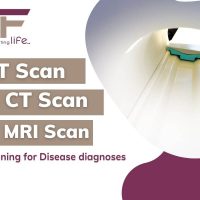
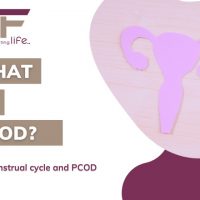
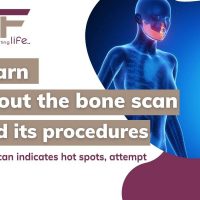


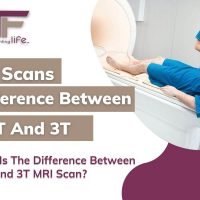

Comments